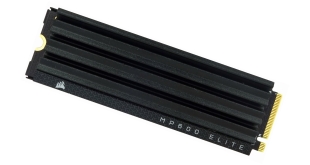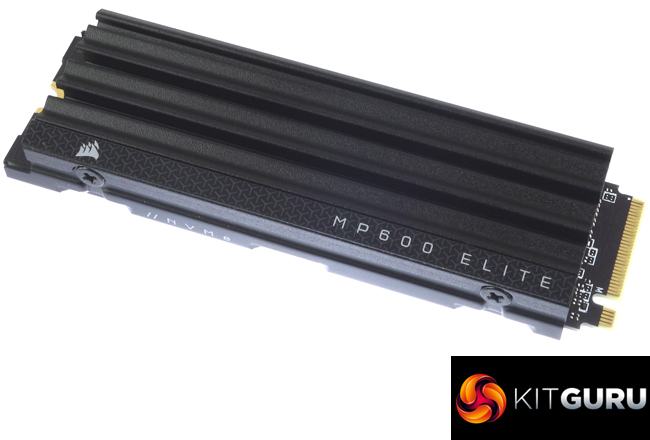
The latest addition to Corsair's MP600 range of Gen 4 SSDs is the MP600 Elite. Using a combination of the latest Phison 4-channel controller and 162-layer NAND, the drive is available in three versions. We analyse the 2TB model, retailing for around £160 here in the UK.
At launch, the MP600 Elite range comprises just two capacities, 1TB and 2TB, but Corsair plans to release a 4TB flagship version in April '24. The drive is available in three versions, standard, with an integrated heatsink (the model we are looking at) and a PS-5 compatible model.
At the heart of the drive is a Phison PS5027-E27T controller which looks after Kioxia BiCS6 162-layer TLC NAND. Phison's PS5027-E27T is a 4-channel DRAM-less design controller which can support up to 8TB of 3D TLC or QLC NAND at transfer speeds up to 3600MT/s.
The Sequential performance for the 2TB model is quoted as up to 7,000MB/s and up to 6,500MB/s for read and writes respectively while the 1TB drive has the same read figure as the 2TB drive but is slightly slower when it comes to writes at up to 6.200MB/s.
Corsair rates the 4K random performance of the 2TB MP600 Elite as up to 1,000,000 IOPS for reads and up to 1,200,000 IOPS for writes. The 1TB drive has the same read figure but with writes at up to 1,000,000 IOPS.
The 2TB drive has a TBW endurance rating of 1200TB and the 1TB drive 600. Corsair backs the drives with a 5-year warranty.
Physical Specifications:
- Usable Capacities: 2TB.
- NAND Components: Kioxia BiCS6 162-layer TLC NAND.
- NAND Controller: Phison PS5027-E27T.
- Cache: None, uses HMB (Host Memory Buffer) technology.
- Interface: PCIe Gen 4 x4, NVMe 1.4.
- Form Factor: M.2, 2280.
- Dimensions: 24 x 80 x 9mm.
- Drive Weight: 32g.
Firmware Version: ERFM11.0
 KitGuru KitGuru.net – Tech News | Hardware News | Hardware Reviews | IOS | Mobile | Gaming | Graphics Cards
KitGuru KitGuru.net – Tech News | Hardware News | Hardware Reviews | IOS | Mobile | Gaming | Graphics Cards



